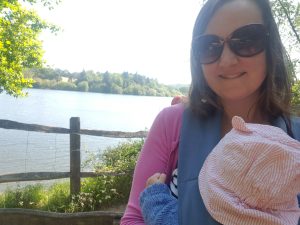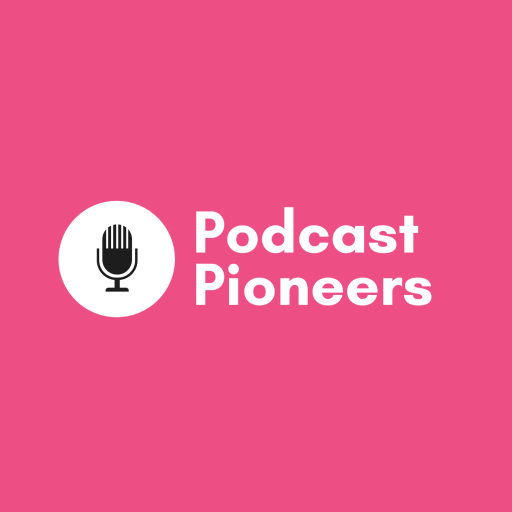He was here. Perfect. Pink and wrinkled and so precious. Swaddled in a hospital blanket, dressed in little borrowed clothes (we’d forgotten one of the bags), breathing, sleeping, resting after his wild work coming into this world. Here our adventure begins…
New parenthood is charged with expectation. But when my child arrived in the world, the ideas I had absorbed from books, social media, and light-hearted antenatal class conversations across a knitted breast bore little relevance to the journey ahead.

The last two years have been the most monumental of my life. Stepping back from my business, hobbies and writing to raise my son has been affirming and beautiful. My partner and I have been reborn as parents. But the middle bit of that story is about being lost, struggling to make sense of the experience and desperately trying to find my feet as a mother. Then there is reconnecting with your old life: Returning to work after parental leave can be a difficult transition for many, but I was fortunate enough to have a hugely positive experience, working on projects I was passionate about with wonderful human beings, part-time. Nursery bugs aside, this really helped me reconnect with my identity and find a new groove, and we’ve (almost) not looked back.
One of the projects I’ve been working on is a direct result of my adventures into new parenthood: a podcast on behalf of The PANDAS Foundation UK, designed to support parents, carers and their loved ones through the wilderness of perinatal mental health.
The charity works at an early intervention stage for perinatal mental illness, providing free support via a helpline, Whatsapp and email services, online and in-person peer support groups. And now, a podcast!

Presented by Head of Charity Annie Belasco and Communications and Development Manager Sally Bunkham, the podcast features a range of personal experiences and recovery stories that we hope will inform, reassure, inspire or encourage people on their own path to being well again. Sally and Annie share their own lived experiences, in addition to PANDAS volunteers and other guests who have made it their mission to help others overcome what can a very scary time by providing a vital service to society.
Suicide is the leading direct cause of death for mothers between 6 weeks and 12 months after the end of pregnancy.
Narratives around parenthood, the physical and mental challenges of caring for a young family in addition to social and racial inequalities mean that this can be a vulnerable time for many. One in five women will experience a perinatal mental health problem and postnatal depression can also affect partners and fathers. Postnatal depression itself is a very broad term for a spectrum of experiences and can present differently for different individuals, which is perhaps why there is still so much misunderstanding around this. But with the right care and support, recovery is possible.
At the core of what my company Podcast Pioneers does, is helping good people do good things through audio. Today, that manifests itself in the work we do with charities, non-profit and fourth sector organisations seeking to improve our world for public good. Thinking about my own journey into parenthood, and the countless raw and moving conversations I’d had with friends new and old during this time, it is obvious why there are SO many parenting podcasts to be discovered.
During my maternity leave, I spent many hours trawling the internet for information about my baby and his development. Online apps and forums were all well and good but were no match for being amongst other mothers at the groups we would attend day-to-day. I found myself searching for warm and conversational content that gave a bit of hope on the harder days. But the scrolling gave me an achey thumb and moreover I came across another problem: Whilst there were a wealth of podcasts to be found about parenting, and more and more about Matrescence – the psychosocial process of becoming a mother – I was searching for something quite specific. I chewed up the books and audiobooks on mental wellness and yet still could not find a voice that spoke to me, in which I recognised my experience. But then, in one of my early morning sessions I came across a social media platform that seemed to have it just right.
The PANDAS Instagram posts were warm, moving, hopeful, inclusive, human, diverse and most of all, non-triggering to all those vulnerabilities you can feel after months of scanty sleep and hormone chaos. This was the voice of reassurance, companionship and humanity I had been seeking in those foggy-minded moments and it moved me. Again and again. How wonderful, I thought, that they were there. How wonderful that anyone could call up or send a message and find a penpal to talk about the thing that people don’t talk about with strangers, and which is often too confusing to talk about with loved ones.
In my case, I didn’t want to talk. But I desperately wanted to listen. I wanted to hear every story I could about what other people went through mentally in those private, cloistered new baby times. I wanted to know what other people were thinking and feeling at 4am, or when they walked into the baby classes, or when they were alone for hours with their little one, getting to know them, caring for them, being entirely depended upon…. I couldn’t believe that such an amazing charity with so much expertise and support on offer didn’t have a podcast. And given the value this organisation gives to our society and to so many people through its brilliant existing content, I was more than keen to give back!
So when I was easing back into work one day, enjoying the novelty of a still-warm cup of coffee, I fired off an email offering to help. To my delight, Sally Bunkham and Annie Belasco got back to me. The process of working with these incredible women to develop a simple format that platformed different speakers and experiences has been a delight. I feel privileged to have been able to help make this happen and am so gratified to think that someone like me, or you, might come across those episodes one lonely day, understand something about themselves or a loved one a little better, and take some hope from these stories.
Thank you so much to everyone who has taken part so far:
Professor Dr Krystal Wilkinson
Our first tranche of episodes features topics such a maternal rage, perinatal anxiety, peer-support, how employers can support parents returning to work, a father’s experience and parenting in a two-mum family. But there are many more stories to tell.
Please do share the lifesaving work of this important charity with loved ones and start a conversation with a parent today.
The PANDAS Foundation Podcast is available on all platforms. Follow the link below to hear it:
https:www.podfollow.com/the-pandas-foundation-podcast
Apple Podcasts URL
https://podcasts.apple.com/us/podcast/the-pandas-foundation-podcast/id1756488171
Spotify URL
Resources for perinatal mental health
Please note, you should always follow your GP or health practitioner’s guidance for anything medically associated from conception onwards. The PANDAS Foundation does not advise on any medication.
Contact PANDAS WhatsApp for support on 07903 508334 every day between 8am – 10pm
If you urgently need help, if you’re in mental health crisis, please call the Samaritans on 111 6123. Or the emergency services via 111 or 999.

